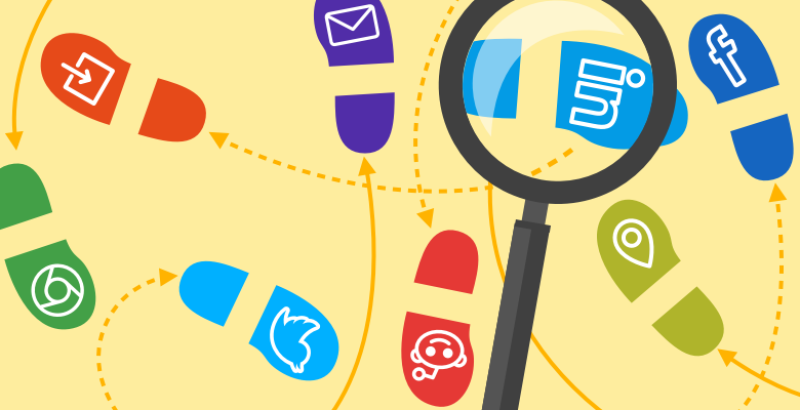
Product
5 Places You’re Being Tracked Online
If you often surf the Internet, casually check your emails or browse through your social media feeds, chances are you’re being tracked in some way. Whether its advertisers logging user habits and creating a profile of you, or the government potentially snooping on your emails, we’re all at risk for being tracked online. We’ve complied the top 5 places you may be tracked on a daily basis.
Your Social Media Accounts
Social media tracking is perhaps one of the most treasured methods utilized by advertisers. Through social media, we give a detailed profile of our user habits, likes, hobbies and more. It’s a gold mine of information just waiting to be tapped into by third-party advertisers. Facebook takes this information and passes it along to Facebook advertisers, who can tailor ads to suit your interests. Facebook games are also able to track you when you sign up. The games integrate with your profile and can pull information out at any time. Twitter also became more nosy last year when they announced they would collect information on all other apps a user has downloaded onto their phone, to help improve targeted advertising. Think you’re safe on Instagram? The popular app geotags your images every time you upload a photo, even if you did not use the ‘Name this Location’ feature.
Your Search Engine
Search engines are essential for us to find what we’re looking for online, but can also be used to track our activity. Google Trends, for example, collects real-time search data to help businesses gauge consumer search behaviors over time. Google also tailors their ads to suit your interests, based on your search history. Google is constantly trying to build a consumer profile of you, and will even filter their search results for you based on your past search history. Yahoo and Bing are not much different, planting cookies in your computer to store your information and remember your location. Sure, a personalized search is a nifty. But is it worth it at the expense of your privacy?
Your Personal Email
Many free email services have been known to implement some form of tracking to serve you relevant ads. But did you know that you can be tracked by companies for simply opening an email? By merely clicking or tapping to open an email, you’re relaying to the sender not only that you opened it, but also where you were when you clicked it and on what device. This technology has been utilized by marketers, advertisers and unfortunately also fraudsters.
Your Favorite Websites
Your top visited websites may be tracking you more than you think. Cookies are commonly used by websites to store your information, alongside directing remarketing ads to you when you visit other websites. Facebook opt ins for example (ie: messages that say ‘Login with Facebook’) streamline the account creation process and minimize consumer efforts, but they are also used by countless websites to access your social media information. When we visit websites, we also share data about ourselves such as our IP address, which can reveal a user’s location.
Your Downloaded Apps
As touched on previously, the apps we install on our phones can be used to profile us on social media sites such as Twitter. Your downloaded apps may also be tracking your location without your knowledge via your phone’s GPS, so it is important to keep tabs on which apps have access to this sensitive information. Be sure to read carefully before tapping ‘yes’ to certain app permissions. Many times apps will include, in the fine print, what the app has access to, but can be hard to find when skimming long User Agreement forms.
Quick Tips to avoid being tracked:
- Clear your search engine browsing cache frequently
- Adjust privacy settings on your social media accounts and apps to help protect our privacy
- Adjust your location services to disable GPS tracking
- Be cautious of sending sensitive information over email without encryption, and beware before opening suspicious emails
- Most importantly, download a reliable personal VPN, such as VyprVPN, to encrypt your data and secure your personal information. Get started today.

